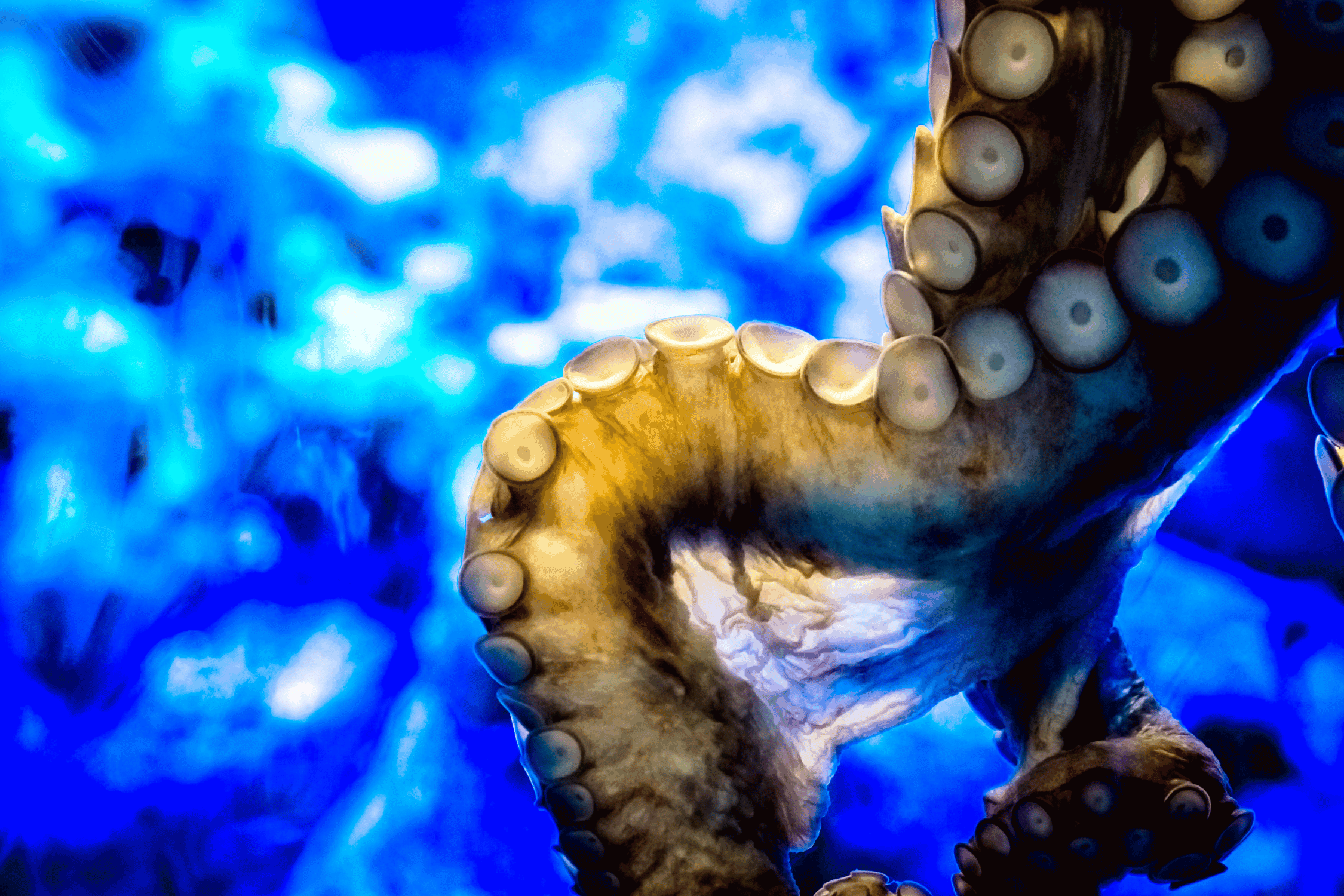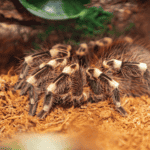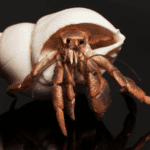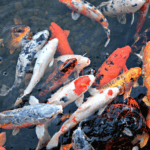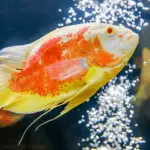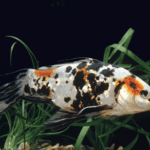Pet octopuses are fascinating creatures that have been gaining popularity in recent years as unique and intriguing pets. However, caring for an octopus is not a task to be taken lightly. These intelligent and complex animals require specialized care and attention to thrive in captivity. In this article, we will provide a comprehensive guide to pet octopus care, covering everything from understanding octopuses to legal considerations.
Understanding octopuses is key to providing proper care for these animals. Octopuses are highly intelligent and curious creatures that require a stimulating environment to stay healthy and happy. They are also known for their unique abilities, such as changing color and shape to blend in with their surroundings and escaping from enclosures. By learning about their natural behaviors and needs, we can create a suitable environment for our pet octopuses.
Choosing your pet octopus is another important aspect of pet octopus care. Not all octopus species are suitable for captivity, and it is essential to research and select a species that is appropriate for your aquarium setup and experience level. Factors such as size, temperament, and lifespan should be considered before making a decision. With proper research and preparation, you can provide a safe and comfortable home for your pet octopus.
Key Takeaways
- Understanding octopuses is crucial for providing proper care.
- Choosing the right species of octopus is essential for a successful aquarium setup.
- Providing a stimulating environment and a balanced diet is key to keeping your pet octopus healthy and happy.
Understanding Octopuses
Species of Octopus
There are around 300 known species of octopus, with the most common being the Common Octopus, the Blue-Ringed Octopus, and the Giant Pacific Octopus. Each species has unique characteristics, such as size, color, and behavior.
Natural Habitat
Octopuses are found in all of the world’s oceans, from shallow coral reefs to the deep sea. They prefer to live in rocky areas or coral reefs, where they can hide in crevices and hunt for prey.
Behavior
Octopuses are solitary creatures and are known for their intelligence and problem-solving abilities. They have a complex nervous system that allows them to learn and remember information. They are also known for their ability to change color and texture to blend in with their surroundings.
Intelligence
Octopuses are considered one of the most intelligent invertebrates, with the ability to solve puzzles, use tools, and even play games. They have been observed using coconut shells as shelters and using rocks to create barriers.
Appearance
Octopuses have a distinct appearance with eight arms and a bulbous head. They have no internal or external skeleton, which allows them to squeeze through tight spaces. They also have a beak-like mouth and can inject venom into their prey.
In summary, understanding octopuses is crucial for providing proper care. With their unique characteristics, behavior, and intelligence, octopuses require specific care to thrive in captivity. By learning about their natural habitat and behavior, we can create an environment that mimics their natural surroundings.
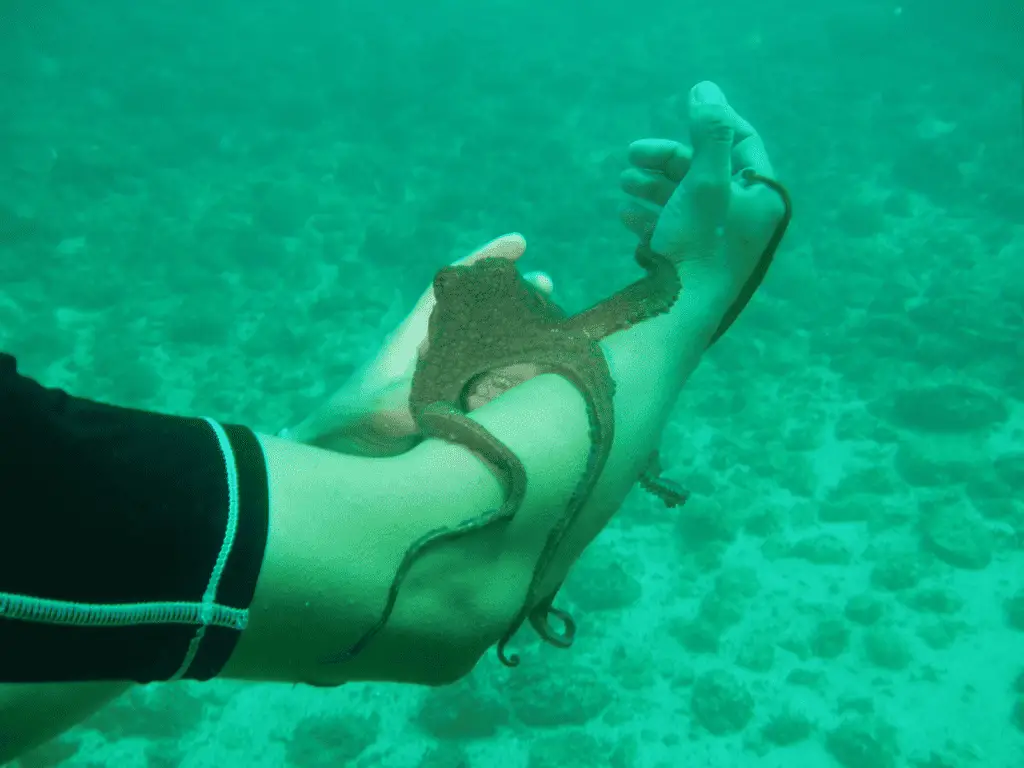
Choosing Your Pet Octopus
When it comes to choosing a pet octopus, there are several species to consider. Each type of octopus has its own unique characteristics and requirements. In this section, we will cover the most common types of pet octopuses to help you make an informed decision.
Common Octopus
The common octopus, also known as the European octopus, is one of the most popular types of pet octopuses. They are intelligent and curious creatures that can be trained to perform simple tricks. Common octopuses are also known for their ability to change color and texture to blend into their surroundings.
Dwarf Octopus
Dwarf octopuses are small in size, making them a great choice for those who have limited space. They are also relatively easy to care for and have a friendly personality. However, they are not as interactive as other octopus species.
Reef Octopus
Reef octopuses are known for their beautiful colors and patterns. They require a larger tank with plenty of hiding places and live rock. Reef octopuses are also more challenging to care for and require a more experienced owner.
Atlantic Pygmy Octopus
The Atlantic pygmy octopus is a small octopus species that is easy to care for and has a friendly personality. They are known for their ability to change color and texture to blend into their surroundings. However, they are not as interactive as other octopus species.
California Two-Spot Octopus
The California two-spot octopus is a medium-sized octopus species that is easy to care for and has a friendly personality. They are known for their ability to change color and texture to blend into their surroundings. California two-spot octopuses are also more interactive than other octopus species.
In summary, when choosing a pet octopus, it is essential to consider the species’ characteristics and requirements. We recommend doing thorough research and consulting with an experienced octopus owner or veterinarian before making a decision.
Aquarium Setup
When it comes to setting up an aquarium for your pet octopus, there are a few key factors to consider. In this section, we will cover the tank size, tank setup, filtration, temperature, light, and water quality.
Tank Size
The size of your octopus tank will depend on the size of your pet. As a general rule, you should have at least 50 gallons of water per octopus. Larger octopuses will require even more space.
Tank Setup
Your octopus tank should be set up with plenty of hiding places and things to climb on. Rocks, caves, and live plants can all provide great hiding places for your pet. You should also include a sand or gravel substrate to help mimic the octopus’s natural habitat.
Filtration
Filtration is important for maintaining a healthy environment for your pet octopus. A good filtration system will help remove waste and keep the water clean. We recommend using a combination of mechanical, biological, and chemical filtration methods.
Temperature
Octopuses are sensitive to temperature changes, so it’s important to keep the water temperature consistent. The ideal temperature range for most octopuses is between 72 and 78 degrees Fahrenheit.
Light
While octopuses don’t require a lot of light, they do need some light to help regulate their circadian rhythm. We recommend using a low-wattage light on a timer to provide a consistent day/night cycle.
Water Quality
Maintaining good water quality is crucial for the health of your pet octopus. Regular water changes and testing can help ensure that the water is free of harmful toxins and chemicals.
In summary, setting up an aquarium for your pet octopus requires careful consideration of tank size, setup, filtration, temperature, light, and water quality. By following these guidelines, you can create a healthy and happy environment for your pet.
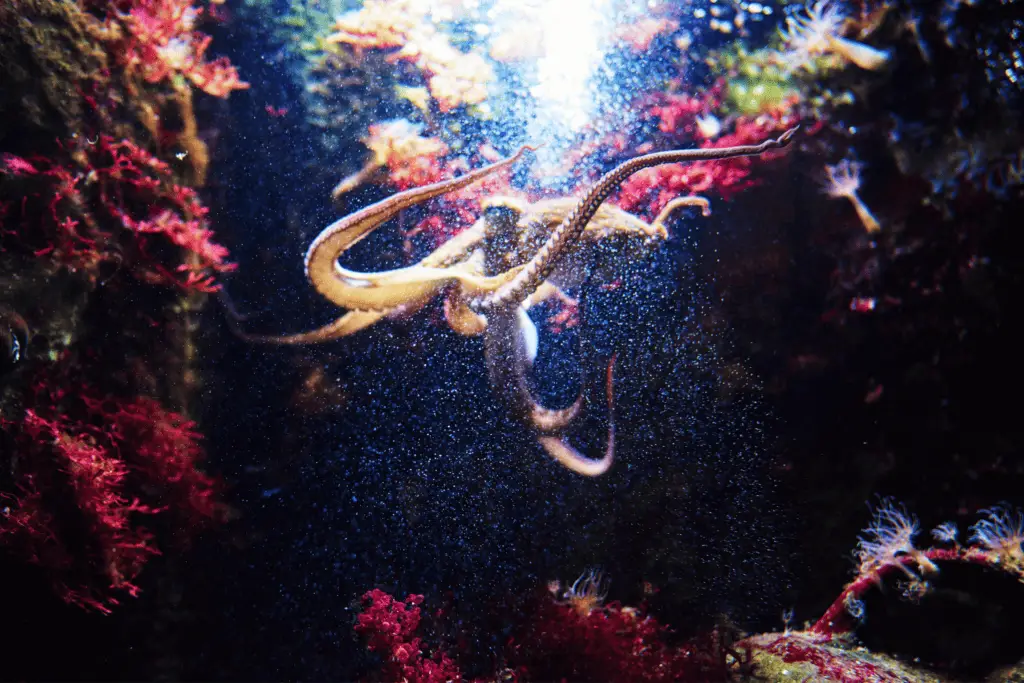
Feeding Your Octopus
Diet
When it comes to feeding your pet octopus, it is important to provide them with a varied diet that mimics their natural diet in the wild. Octopuses are carnivores and their diet consists mainly of crabs, shrimp, and other types of seafood.
Feeding Schedule
Octopuses are known to be opportunistic feeders, meaning they will eat whenever food is available. However, it is important to establish a feeding schedule to ensure your octopus is getting the right amount of food. We recommend feeding your octopus once a day, preferably at the same time every day.
Hunting
In the wild, octopuses hunt for their food by using their tentacles to capture prey. To mimic this natural behavior, you can provide your pet octopus with live prey. Some octopuses may prefer to hunt and capture their own food, while others may prefer to be hand-fed. It is important to observe your octopus to determine their preference.
When it comes to feeding your octopus, it is important to remember that they have a high metabolism and require a lot of food. It is also important to provide them with a varied diet to ensure they are getting all the necessary nutrients. We recommend consulting with a veterinarian or a knowledgeable pet store employee to determine the best diet for your pet octopus.
Health and Lifespan
Lifespan
As pet owners, we want our pets to live long and healthy lives. Octopuses have a relatively short lifespan, with most species living between one to two years. However, some species can live up to five years in captivity with proper care. It’s important to research the specific species of octopus you plan to keep as a pet to understand their typical lifespan.
Common Health Issues
Keeping an octopus as a pet requires a lot of attention to detail and observation of their behavior. Some common health issues that may arise include bacterial infections, parasitic infections, and fungal infections. It’s important to monitor your octopus for any signs of illness, such as changes in appetite, lethargy, or unusual behavior. If you suspect your octopus is sick, it’s best to consult with a veterinarian who specializes in exotic pets.
Toxicity
Octopuses are not venomous, but some species have been known to produce toxins that can be harmful to humans. It’s important to handle your octopus with care and avoid ingesting any of their bodily fluids. It’s also important to keep in mind that octopuses can escape from their tanks and potentially harm other pets or children in the household. Always supervise your octopus when outside of their tank and ensure that their tank has a secure lid.
In summary, keeping an octopus as a pet requires a lot of attention to detail and observation of their behavior. Understanding their typical lifespan and common health issues is crucial to providing them with proper care. Handling them with care and ensuring their tank is secure can help prevent any potential harm to humans or other pets in the household.
Octopus Enrichment
Octopuses are highly intelligent creatures that require mental stimulation to remain healthy and happy. Enrichment is an essential aspect of pet octopus care. In this section, we will discuss different ways to enrich your pet octopus’s environment.
Toys
Providing toys for your pet octopus is an excellent way to keep them entertained and stimulated. Octopuses enjoy playing with objects, and you can provide them with a variety of toys, such as:
- Plastic balls
- Shells
- PVC pipes
- Plastic jars
- Puzzle feeders
It is important to ensure that the toys are safe for your pet octopus and do not have any sharp edges that could harm them.
Interaction
Interacting with your pet octopus is another way to provide mental stimulation. Octopuses are social creatures and enjoy interacting with their owners. You can interact with your pet octopus by:
- Hand-feeding them
- Playing with them
- Watching them explore their environment
It is important to be gentle when interacting with your pet octopus and to avoid sudden movements that could startle them.
Escape Artists
Octopuses are known for their ability to escape from their tanks, making it essential to provide a secure environment. You can prevent your pet octopus from escaping by:
- Using a secure lid on the tank
- Ensuring that there are no gaps or holes in the tank
- Monitoring the water temperature and quality regularly
It is also important to keep the tank away from any potential hazards, such as electrical cords or other pets.
In conclusion, providing enrichment for your pet octopus is essential for their mental and physical health. By providing toys, interacting with them, and ensuring a secure environment, you can keep your pet octopus happy and healthy.
Legal Considerations
When it comes to owning a pet octopus, there are several legal considerations to keep in mind. As responsible pet owners, we must ensure that we are complying with all relevant laws and regulations. Failure to do so can result in fines, legal action, and even the seizure of our pets.
One important consideration is whether it is legal to own an octopus in your area. Some states and countries have restrictions on the ownership of certain species, including octopuses. It’s important to research local laws and regulations to ensure that you are allowed to keep an octopus as a pet.
Another legal consideration is the source of your octopus. It is illegal to take octopuses from the wild in many areas, as they are protected under conservation laws. Make sure that your octopus is legally obtained from a reputable breeder or supplier.
It’s also important to consider the potential risks associated with owning a pet octopus. Octopuses are intelligent and curious creatures that can be difficult to contain. They may escape from their tanks and cause damage to property or harm to other animals. As such, it’s important to ensure that your octopus is kept in a secure and appropriate enclosure.
In addition to these legal considerations, it’s important to consider the ethical implications of owning a pet octopus. Octopuses are highly intelligent and social animals that require a lot of care and attention. As such, it’s important to ensure that you are able to provide them with the appropriate level of care and attention before deciding to bring one into your home.
Frequently Asked Questions
What are the best types of octopus to keep as pets?
There are several species of octopuses that can make great pets. The most common species kept as pets are the bimaculoides, vulgaris, and mercatoris. Bimaculoides are the most popular because they are easy to care for and have a friendly disposition. Vulgaris are larger and more challenging to care for, while mercatoris are smaller and more delicate.
What do pet octopuses eat?
Octopuses are carnivores, and their diet consists mainly of live prey such as crabs, shrimp, and small fish. It’s important to provide a varied diet to ensure they get all the necessary nutrients.
How difficult is it to care for a pet octopus?
Caring for a pet octopus can be challenging and requires a lot of dedication. Octopuses are intelligent and curious creatures that require a lot of mental stimulation and attention. They also require a specialized environment with specific water parameters and filtration systems.
What size tank is needed for a pet octopus?
The size of the tank needed for a pet octopus depends on the species and size of the octopus. A general rule of thumb is to have at least 50 gallons of water per octopus. The tank should also have plenty of hiding spots and enrichment toys.
What is the lifespan of a pet octopus?
The lifespan of a pet octopus varies depending on the species, but on average, they live for 1-2 years. Some species, such as the dwarf octopus, have a shorter lifespan of only 6-8 months.
Where can I find pet octopuses for sale?
Pet octopuses can be challenging to find for sale. It’s essential to purchase from a reputable breeder or supplier to ensure the octopus is healthy and ethically sourced. Online forums and specialty pet stores may be good places to start your search.
